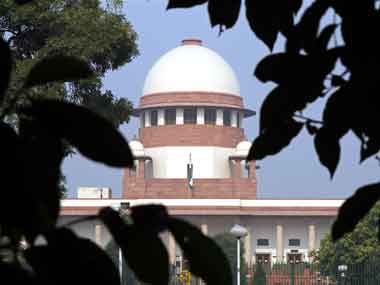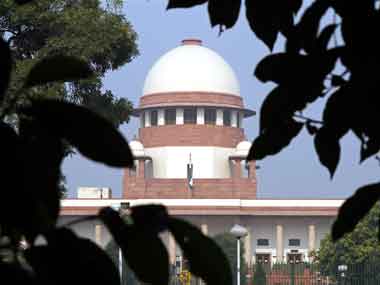The Supreme Court last week, in a significant order, passed a slew of directions for better implementation of the Right to Information Act, 2005. A bench of Justice AK Goel and Justice UU Lalit passed the order on 20 March. The court has held that public authorities cannot ask RTI applicants to state their motive for filing a query. For cases which are yet to have been decided, the apex court has held that the permission of the Chief Justice of the concerned High Court will only required if the information is exempt under the Act. Further, the court has also directed that the application fee for filing a query should normally not be more than Rs 50, and fees for per page information (in cases where documents have to be photocopied) should not be more than Rs 5 per page. It also held that public authorities should transfer queries to appropriate authorities if information is available to them, and not send them back to applicants. RTI activists have hailed the apex court’s order. Activist and former chief information commissioner Shailesh Gandhi said that the regulation requiring a motive to be spelt out “violated the provisions of the RTI Act, and the Supreme Court has acknowledged the supremacy of the Act.” [caption id=“attachment_4406785” align=“alignleft” width=“380”]  File image of Supreme Court. Reuters[/caption] Sunil Ahya, one of the petitioners in the case, spoke to Firstpost on the importance of the Supreme Court’s order and its implications for transparency: What does the apex court’s order mean for RTI applicants? Normally, in legal disputes, litigants are required to establish their locus standi on a case, that is, they must state reasons for why the matter concerns them. However, under the RTI Act, it is the other way round. The Act clearly states that the motive for seeking information is not required to be stated. On the contrary, if an authority has to deny information to an applicants, the reasons for it have to be specified. The Supreme Court agreed with my contention, and held that the law does not require people to say why they are asking for a particular piece of information. Could you shed light on the rules under the RTI Act which you challenged in your petition? Throughout the country, High Courts have framed Rules for the implementation of the RTI Act. The Rules framed by the High Courts of Allahabad, Jharkhand and Rajasthan were in contravention to the Act with respect to specifying the motive. Similarly, the High Courts of Gujarat, Gauhati, Madhya Pradesh, Patna, Punjab and Haryana and Sikkim had framed Rules which dealt with action to be taken if a particular authority does not deal with the subject of the query. In such a situation, the Rules stated that public authorities should advice applicants about the correct authority only “wherever possible.” Thus, applicants would have to run from pillar to post in an effort to find the correct authority or department and on top of that, their application fees would not refunded. Thus, the order of the apex court in this regard is a very significant one. The provisions in each of the state’s Rules were worded in the exact same manner. From a plain reading of the provisions, it is clear that authorities had simply copied the provisions from each other. What were the regulations regarding application fees which were challenged? The point about the application fees was not a part of my petition; it was raised by other petitioners. However, to illustrate how high the fees prescribed were, the Allahabad High Court’s Rules had stipulated that applicants need to pay Rs 15 per page to photocopy documents. What can be done to make the RTI Act more accessible to common people? For any RTI activist as of now, the most important provisions to be strengthened are contained in Section 4 of the Act. These require authorities to maintain records in a way which facilitates the right to information and put as much information in the public domain suo motu as possible. If these provisions are implemented, the need for people to file queries will be reduced and the process of transparency will be aided.
The Supreme Court passed a slew of directions for better implementation of the RTI Act. Speaking to Firstpost, one of the petitioners in the case welcomed the order.
Advertisement
End of Article


)

)
)
)
)
)
)
)
)



